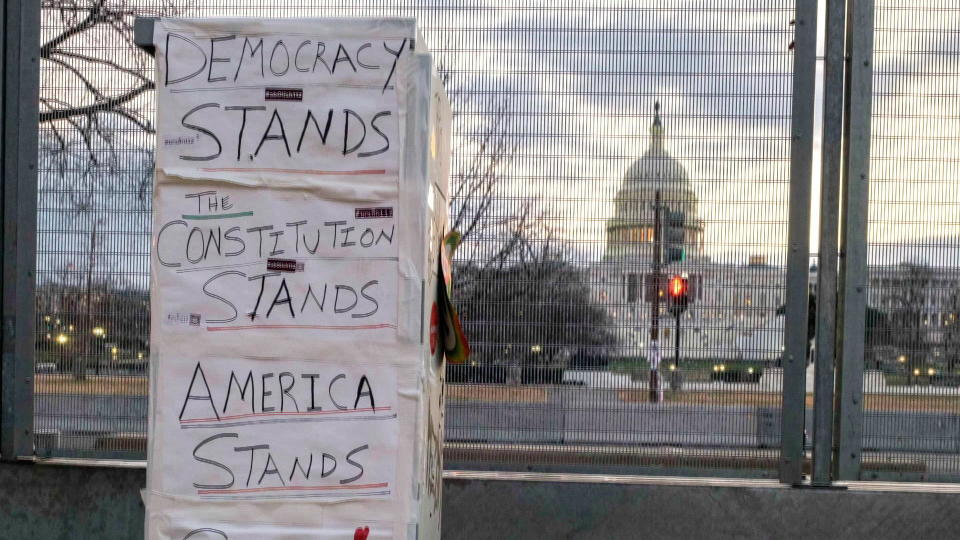January 6 hearings: Can our Union survive?
Hearings into the January 6th attack on the U.S. Capitol take center stage in Washington this week. Here are some thoughts from CBS News' John Dickerson:
During the Civil War, President Lincoln was told construction on the Capitol dome could not continue for lack of funds. He said it must. "If people see the Capitol going on," Lincoln said, "it is a sign we intend the Union shall go on."
Both did, affirming the relationship between a temple of American democracy and the durability of that democracy.
On January 6, 2021, rioters tried to stop the Union as it had been going on, by stopping what was going on inside the Capitol: the peaceful transfer of power that has been the hallmark of the Union since its founding 246 years ago.

This week, Congressional hearings will examine that attack, but they will reveal more than just what happened in the past. The hearings will highlight what is happening right now: an ongoing struggle between two sets of habits that will determine how the Union will go on into the future. One set of habits is represented by the Capitol -- that competing interests can be resolved through reason, and that when the people decide to transfer power, we affirm the system that allows it by gathering on the Capitol steps for the handover. The rioters brought other habits. As Senate Minority Leader Mitch McConnell said days after the attack, "The mob was fed lies ... They were provoked by the president and other powerful people, and they tried to use fear and violence to stop a specific proceeding of the first branch of the federal government which they did not like." Never before had the president, the most powerful person in American government, taken aim at a core feature of that government.
The widespread bipartisan revulsion after January 6th should have banished the habits of the rioters and the president they say inspired them, but it has not. Polls show a majority of Republicans believe the 2020 election was stolen, despite legal decisions and election audits.
Donald Trump was not bounced from his party for breaking with his oath, but is promoted as its next nominee. The habits of American democracy withstood the challenge of January 6th, but will they withstand the next test? The response to the hearings will offer a clue.
On one side will be those who keep with the habits and traditions that were threatened on January 6th. On the other will be those who respond by employing the habits of deception, diversion and dissembling which led to the attack.
Which side prevails will point toward how – and maybe whether – the Union will go on into the future.

For more info:
Select Committee to Investigate the January 6 Attack on the United States Capitol
Story produced by Young Kim. Editor: Lauren Barnello.
See also:
Liz Cheney: Jan. 6 "conspiracy" was "extremely broad … well-organized"
NIH doctor calls long COVID a "significant problem for the country going forward"
Economist Betsey Stevenson on the labor market, inflation and economic recovery
Schiff calls DOJ decision not to charge 2 Trump aides "deeply troubling"

 money
money 